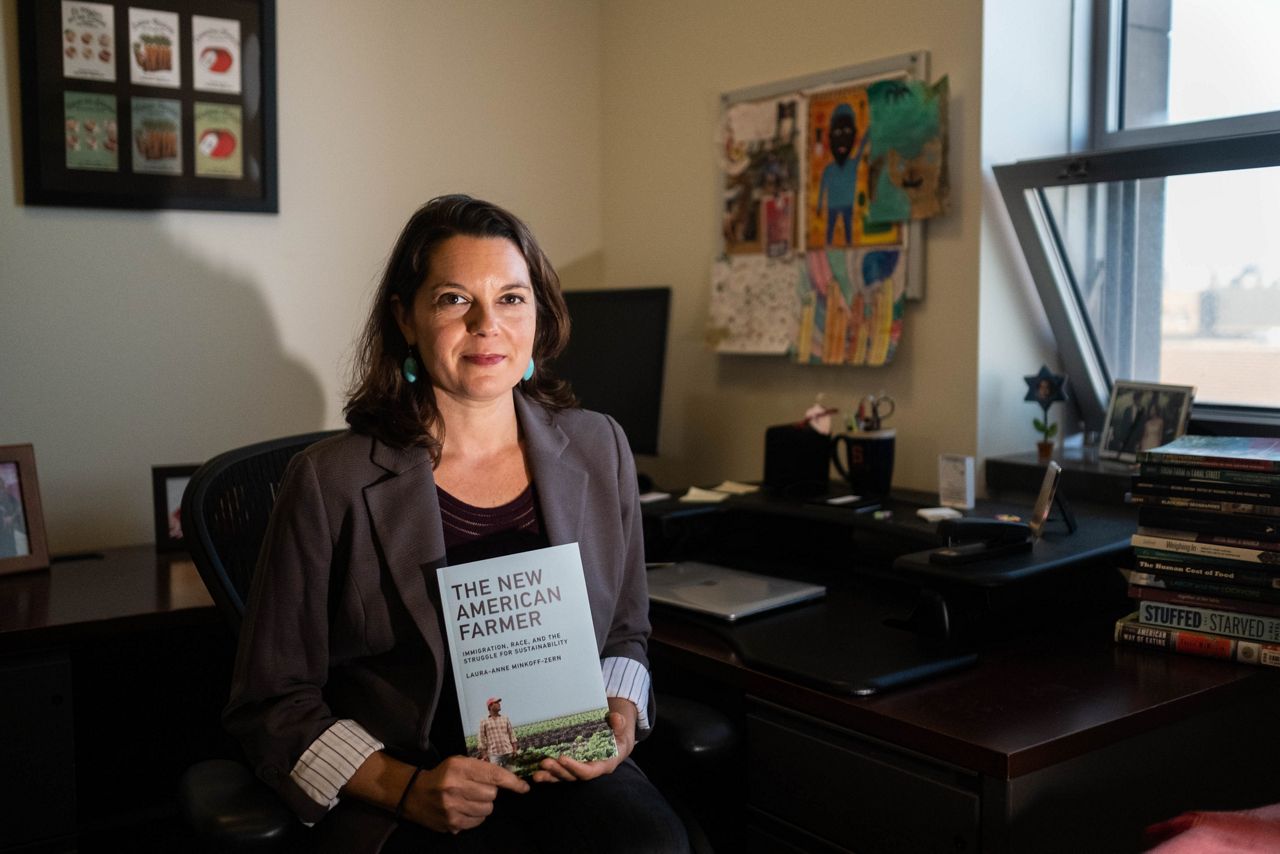Crispin Hernandez, a former farmworker-turned-advocate, points to long, grueling weeks in harsh weather conditions as a primary reason he backs the state overtime rules for farm laborers.
Hernandez, who now works at the Workers Center of CNY in Syracuse, was employed at a dairy farm in Lowville from 2012 through 2015, and recounted the 72-hour work weeks he’d put in – he received overtime pay after 60 hours per week.

“It’s a right that we deserve,” Hernandez said of the policy that went into effect in September.
New York Labor Commissioner Roberta Reardon issued an order that over the next decade reduces the overtime threshold for farmworkers from 60 hours to 40. In 2024, it will drop to 56 hours and continue dropping in increments until 2032 when it hits 40 hours.
“Right now, dairy workers are working over 60 hours and they're receiving overtime pay, and that's great but some workers in vegetables or apples or strawberries, if it's raining or something, they may only work 55 hours or 45 hours for example, and they aren't receiving any kind of overtime pay,” said Hernandez.
The weather conditions they worked under were very harsh, Hernandez said. New York has hot summers, and cold, snowy winters. For dairy workers, they must milk cows twice a day no matter what the weather.
And for farm laborers, many of whom are migrant workers and come from an agricultural background in their home countries, farm labor is the best option for income.
“For us workers coming from Central America and other countries or the Visa workers coming from Jamaica, it’s by necessity,” said Hernandez who is originally from Mexico. “We work honorably to support our families in our home countries and that necessity obligates us to continue working.”
Some say the new overtime decision will hurt farmers and argue the change will negatively impact the income of farmworkers.
“This is a difficult day for all those who care about New York being able to feed itself,” New York Farm Bureau president David Fisher said in a statement when the decision came out in September. “Farms will be forced to make difficult decisions on what they grow, the available hours they can provide to their employees, and their ability to compete in the marketplace. All of this was highlighted in the testimony and data that the wage board report and the commissioner simply ignored.”

Laura-Anne Minhoff-Zern, associate professor and graduate program director of food studies at Syracuse University, said overtime pay exemption for farmworkers is a historical precedent that needs to be updated.
“It's important to understand that farmworkers and domestic workers are the only workers that were left out of the New Deal suite of labor laws and reforms of the 1930s,” Minkoff-Zern said.
Minkoff-Zern, who has published a book about farming and immigration, says that for decades people that were born in the United States didn’t grow up on farms and they were not interested in doing the work on farms. But many people coming to the United States from places like Mexico and Central America grew up working in agriculture.
“There used to be a large migration stream of African Americans coming out from the south to the north to work on farms, but as African American workers had more opportunities outside of agriculture, and gained more access to education, we saw that that's not the work they wanted to do, because it has remained such a low pay job for so long,” said Minkoff-Zern. “Farmers in upstate New York, and many parts of the U.S., have become dependent on immigrant agriculture, or immigrant workers streams that have been coming for many decades, both undocumented and as part of the H-2A program.”
The H-2A program is a temporary visa that allows workers to come to the U.S. to work on seasonal farms such as apple orchards.

“We've seen that in California farmworkers get paid overtime, and it still is one of the most productive agricultural regions and farms are thriving,” she said. “So, while there is going to be immediate shock and loss, and yes, some farms are going to struggle, I think it has to be done. It's not the farmworkers fault that the farmers are struggling, and the most vulnerable people in agriculture shouldn't be called upon, to make up the differences and ultimately, what we're struggling with here shouldn't be an issue of farmers versus farmworkers.”
The larger problem, Minkoff-Zern said, is companies purchasing goods from farmers and only giving them a small amount for their products. The grocery stores and food processors are the ones making substantial amounts of money and farmers receive a small profit and in turn, are not paying farmworkers a livable wage.
“Farmworkers have every right to be paid overtime just like every other employee. We can't continue just to make exceptions without looking at what the bigger problems are,” she said.







